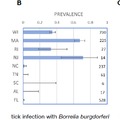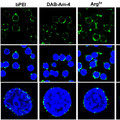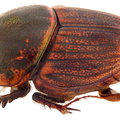Ha a Retraction Watch blog értesülései pontosak, Gilles-Eric Séralini 2012 -es "Long term toxicity of a Roundup herbicide and a Roundup-tolerant genetically modified maize" című cikkét vissza fogják vonni. Ez önmagában nem meglepő, a számomra mellbevágó a visszavonást kísérő levél közepe felé található, a visszavonás indoklása:
"Unequivocally, the Editor-in-Chief found no evidence of fraud or intentional misrepresentation of the data. However, there is legitimate cause for concern regarding both the number of animals in each study group and the particular strain selected. The low number of animals had been identified as a cause for concern during the initial review process, but the peer-review decision ultimately weighed that the work still had merit despite this limitation. A more in-depth look at the raw data revealed that no definitive conclusions can be reached with this small sample size regarding the role of either NK603 or glyphosate in regards to overall mortality or tumor incidence. Given the known high incidence of tumors in the Sprague-Dawley rat, normal variability cannot be excluded as the cause of the higher mortality and incidence observed in the treated groups.
Ultimately, the results presented (while not incorrect) are inconclusive, and therefore do not reach the threshold of publication for Food and Chemical Toxicology. The peer-review process is not perfect, but it does work. The journal is committed to a fair, thorough, and timely peer-review process; sometimes expediency might be sacrificed in order to be as thorough as possible. The time-consuming nature is, at times, required in fairness to both the authors and readers. Likewise, the Letters to the Editor, both pro and con, serve as a post-publication peer review. The back and forth between the readers and the author has a useful and valuable place in our scientific dialog."
Magyarul semmi nyomát sem találták adathamisításnak, vagy az adatok szándékos félreértelmezésének. A kísérleti állatok alacsony számát már a referálás során is kifogásolták, de akkor úgy döntöttek, hogy ettől még leközlik a vizsgálatot. Miután újra alaposan átvizsgálták az adatokat, arra jutottak, hogy nem zárható ki, hogy a talált különbség egyszerű szórás. Mivel a szerkesztők most mégis úgy gondolják, hogy a cikk nem elég jó a Food and Chemical Toxicology újságba, inkább visszavonatják utólag.
Nem tudom mások, például a blog többi szerkesztője mit gondol erről, csak a saját magánvéleményemet tudom leírni, de nekem ez a dolog egyáltalán nem tetszik. Ha Séralini nem hazudott és a kísérleteket tényleg elvégezte, akkor tulajdonképpen miért kellene visszavonni a cikkét? Nem mondom, hogy jó a cikk, az idétlen kísérlettervezés iskolapéldája, kellő sajtócirkusszal körítve, a legjobb lett volna, ha meg sem jelenik. De ha az újság egyszer már úgy döntött, hogy megüti a mércét náluk, akkor nem igazán értem, hogy utólag hogyan mondhatják, hogy mégsem elég színvonalas. Ez teljesen fölöslegesen erősíti a GMO összeesküvés-elméletet. Ezúttal különösen örülnék, ha a hozzászólások közt minél többen kifejtenék, mit gondolnak a dologról.







